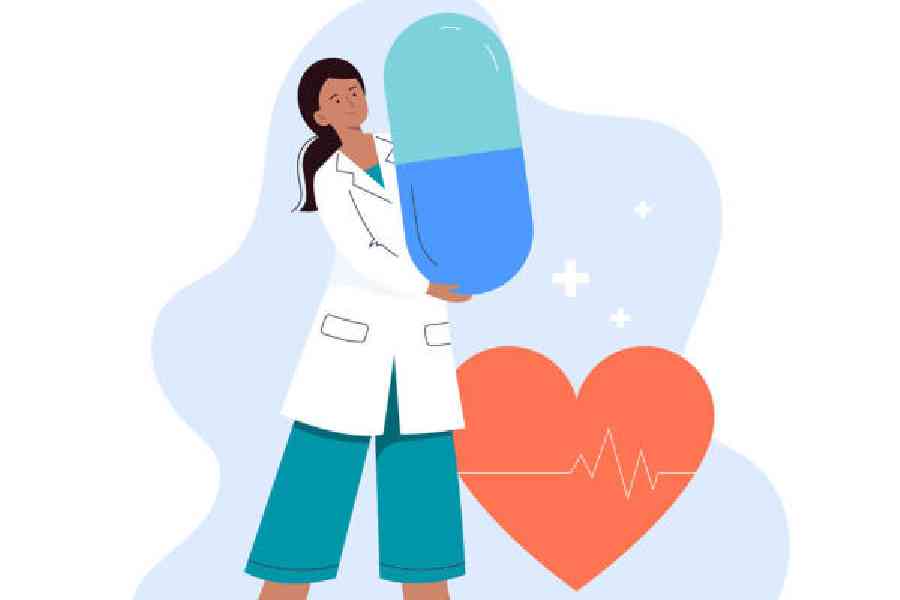The heart pumps blood to every part of the body, especially the brain, which controls all the other organs and their functions. If the heart does not work properly, the brain gets a reduced blood supply, other organs like the liver and the kidney are affected and, eventually, the person suffers multi-organ failure.
Heart failure affects around one million people in India. It first appears around the age of 45 years. Every 12 out of 1,000 Indians suffer heart failure by the age of 85. Heart failure is more common now than it used to be because diseases such as diabetes, obesity, hypertension and elevated lipids aggravate it. People receive treatment for these diseases and they are now living long enough for their heart function to be compromised.
The heart fails because it cannot vigorously pump out enough blood to supply the entire body. This can happen because the heart muscles have become weak due to a block in one or more blood vessels of the heart. When vessels are blocked, blood does not reach that area. Lack of oxygenated blood damages and even kills the muscles in those areas. The heart becomes uncoordinated. This can also happen if a person is born with a defect in the heart (congenital heart disease). An infection of the heart muscle, known as myocarditis, can also weaken the heart. Diseases like hypothyroidism, diabetes and hypertension can also affect the heart. Elevated lipids cause fatty plaques to build up within the blood vessels of the heart such that the heart itself gets insufficient blood and cannot function efficiently.
Many people do not realise that they have heart failure. In the early stages, their only symptoms are a decrease in their ability to exercise. They get tired and fatigued even while doing housework. Sometimes, they wake up suddenly in the middle of the night because they cannot breathe. This may be mistaken for sleep apnoea. When they cough to breathe, they may bring out frothy sputum that is blood-stained. Eventually, there may be swelling of the abdomen as back pressure causes the liver to enlarge. Fluid builds up in the abdomen. The feet may also get swollen. (To see if your feet are swollen, press your thumb on your leg above the ankle and hold it for 10 seconds. If a depression forms, it means you’re accumulating fluid in your legs).
Cardiac function can be evaluated with an X-ray, which shows if the heart is enlarged. An ECG can help a physician evaluate the conduction systems of the heart. An echocardiogram will show whether the chambers are enlarged and pumping out blood properly (the ejection fraction). It can be measured. The ejection fraction should be between 55 per cent and 70 per cent.
Metabolic diseases should be evaluated with blood tests for diabetes, cholesterol levels, thyroid functions and anaemia. Anaemia can cause heart failure in young people as low haemoglobin compromises the oxygen-carrying capacity of the blood. The heart has to pump vigorously and rapidly to provide essential organs with sufficient blood.
Treatment for cardiac failure is available. Many newer medications help improve the function of the heart. Pacemakers can improve conduction and stents can bypass blocks. The important thing is to diagnose it sufficiently early and to take your medicines regularly. Some lifestyle changes can also help, like trying to walk for 30 minutes a day, not smoking or drinking, controlling diabetes and achieving ideal body weight.
If you get fatigued as you get older, don’t put it down to your advanced years; do have your cardiac status evaluated.
The writer has a family practice at Vellore and is the author of Staying Healthy in Modern India. If you have any questions on health issues please write to yourhealthgm@yahoo.co.in










